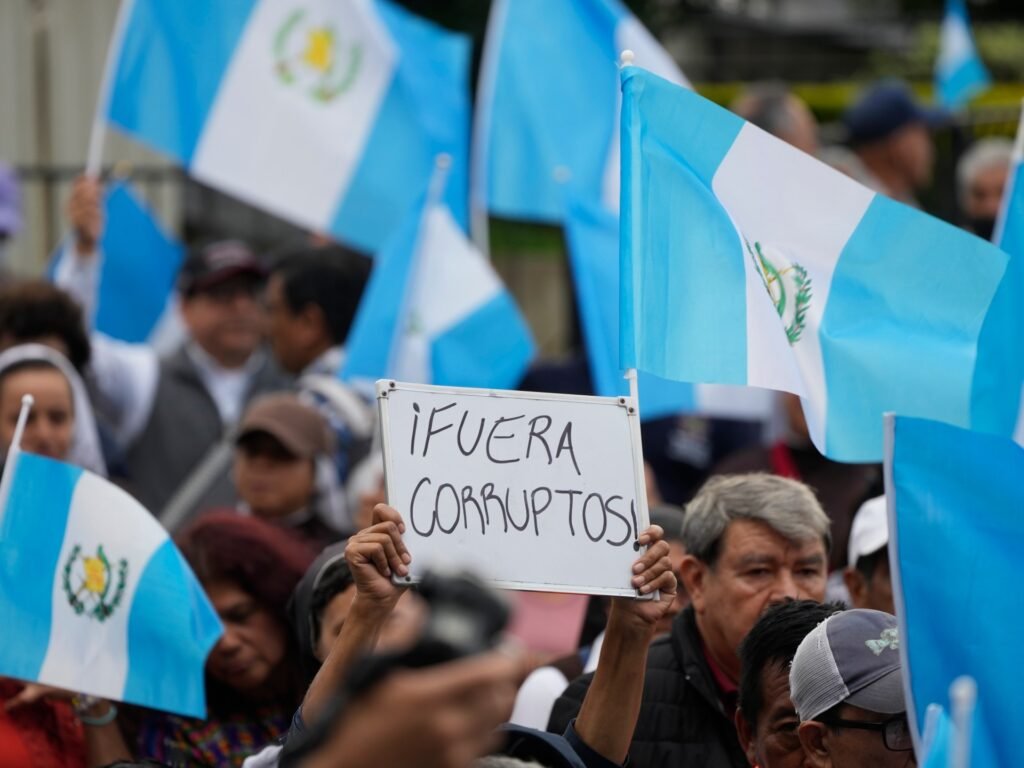Bogota, Colombia – President Gustavo Petro of Colombia has vocally opposed a court ruling from Guatemala that calls for the arrests of two high-ranking Colombian officials, alleging corruption within the prosecutor’s office.
The Public Prosecutor of Guatemala, Rafael Curruchiche, accused Colombian Attorney General Luz Adriana Camargo and former Defence Minister Ivan Velasquez on Monday of corruption, influence peddling, obstruction of justice, and collusion. These accusations stem from an investigation conducted under the United Nations-backed International Commission against Impunity in Guatemala (CICIG) regarding bribery involving the Brazilian construction company Odebrecht.
On Tuesday, Petro asserted that the legal actions against Camargo and Velasquez were politically driven, claiming that the attorney general’s office has become “subordinate to the mafia.”
Petro also commented on X, expressing that “narcotrafficking multinationals are attempting to seize control of legal authorities and governments to facilitate and cover their illicit activities.”
In a statement on Monday, the Guatemalan government expressed strong opposition to the arrest warrants, highlighting that “these actions are pursued with a clear political aim and lack a foundation in both national and international legal frameworks.”
During the announcement of the arrest warrants, Curruchiche made unsubstantiated claims that Camargo and Velasquez had misused their authority while involved in the CICIG investigation into Odebrecht, which has been implicated in a massive corruption scandal involving bribery of officials across 10 countries in Latin America.
On Tuesday, Curruchiche presented what he claimed were emails between Odebrecht personnel and Camargo as evidence of their guilt, but Al Jazeera could not confirm the authenticity of these emails.
Curruchiche’s office began investigating Velasquez, now Colombia’s ambassador to the Holy See, in January 2023 while he was still serving as defence minister. From 2013 to 2019, Velasquez led the CICIG, which revealed numerous corruption networks in Guatemala.
The Guatemalan prosecutor’s office has not responded to requests for comment.
Both Camargo and Velasquez have denied the charges against them.
“The corrupt Guatemalan Attorney General and her prosecutor Curruchiche – who have been labeled as corrupt and sanctioned by the US and the EU – are extending their persecution against me and Luz Adriana Camargo,” Velasquez noted in a post on X on Tuesday.
In a press conference held in Bogota on Wednesday, Colombia’s attorney general also dismissed the allegations.
“I find comfort in knowing I am innocent of the crimes attributed to me due to political bias,” Camargo stated.
‘Action as a weapon’
Juanita Goebertus Estrada, who leads the Americas Division at Human Rights Watch, told Al Jazeera that the allegations against the Colombian officials lack merit.
“There is no credible evidence against Velasquez or Camargo regarding any involvement in criminal activities,” she said, noting that the warrants are indicative of a series of controversial maneuvers by Guatemala’s Attorney General Maria Consuelo Porras, who has faced international backlash for impeding anti-corruption efforts.
“Consuelo Porras has a dismal history regarding human rights and democracy. She has persistently wielded criminal proceedings as a weapon against those combating corruption in the nation,” Goebertus added.
Curruchiche faced criticism for meddling in elections after his office suspended then-candidate Bernardo Arevalo’s political party just before the presidential runoff in 2023. Arevalo ultimately won the election and took office in January 2024.
The Guatemalan administration has labeled the arrest warrants as representative of broader judicial overreach.
“These measures are part of a series of actions taken by the Public Prosecutor’s Office, the Attorney General, and affiliated judges that have skewed the definition of justice in Guatemala,” the government explained in its Monday statement.

Despite the arrest orders, it seems unlikely that actions against the two officials will occur beyond Guatemala.
“Petro is unlikely to honor the arrest warrants… and it is highly probable that he will seek an injunction against any international notices from Interpol,” stated Sergio Guzman, director at Colombia Risk Analysis, a security think tank, to Al Jazeera.
Conversely, Colombian opposition leaders have seized upon the arrest warrants as proof of corruption within Petro’s administration. Vicky Davila, a leading conservative figure in the upcoming presidential elections, pledged to adhere to the warrants.
“On August 7 of next year, we will send them to Guatemala on a commercial flight, handcuffed as would befit extradited individuals, to respond to the justice of that nation for their alleged wrongdoing,” Davila wrote in a post on X on Monday.


